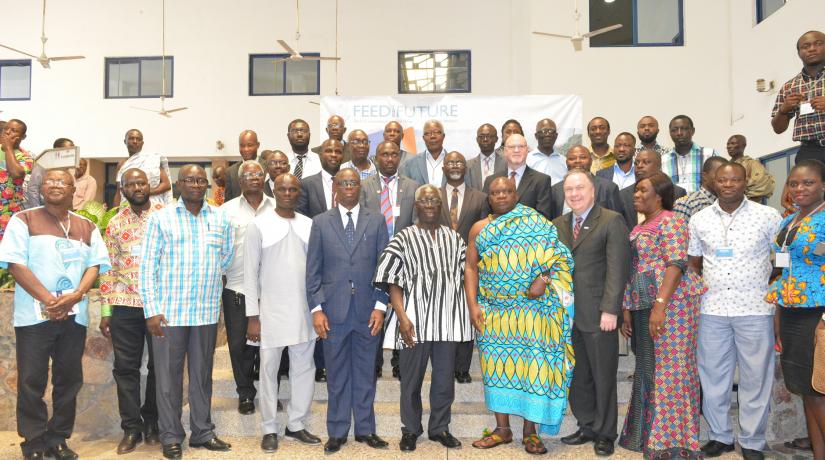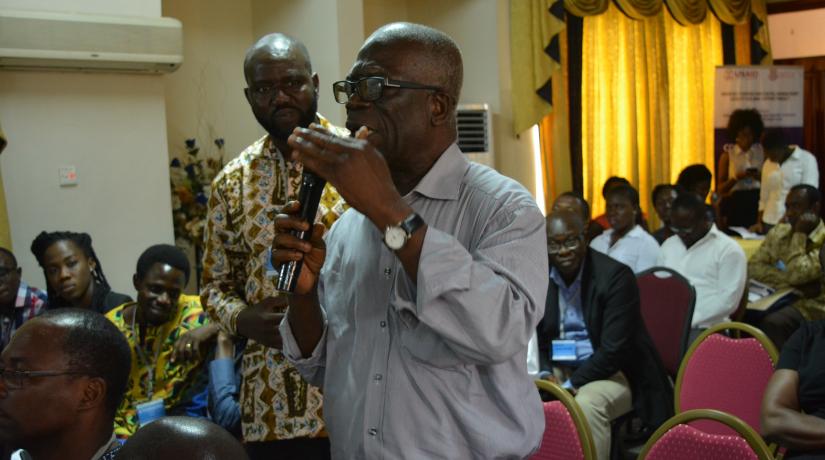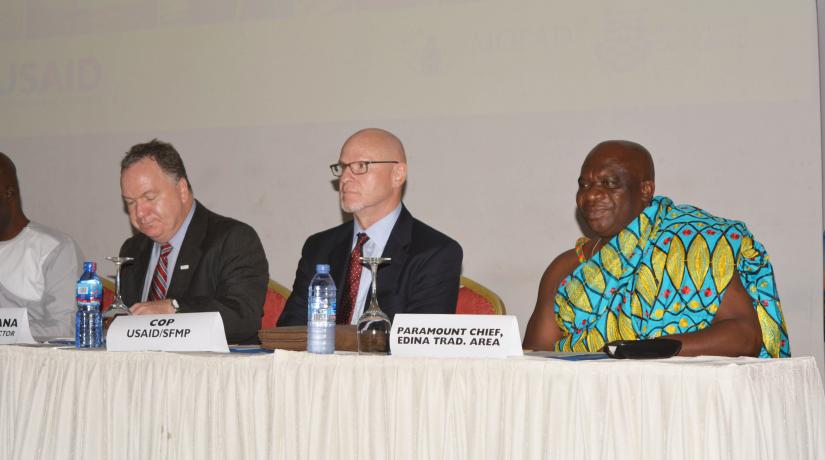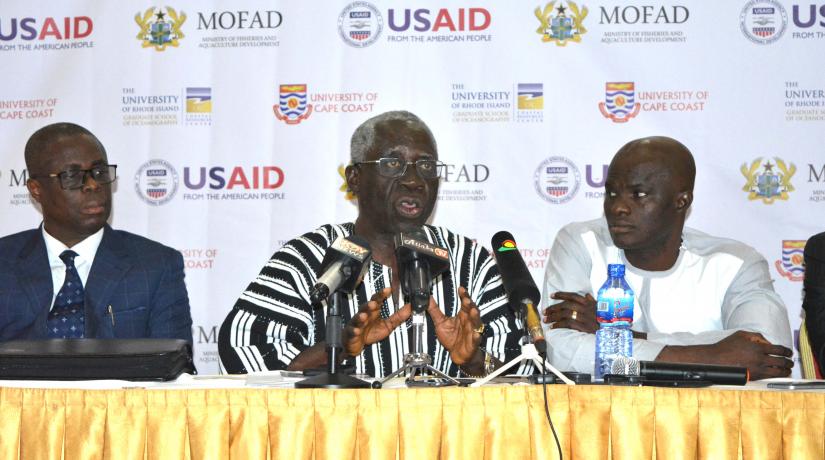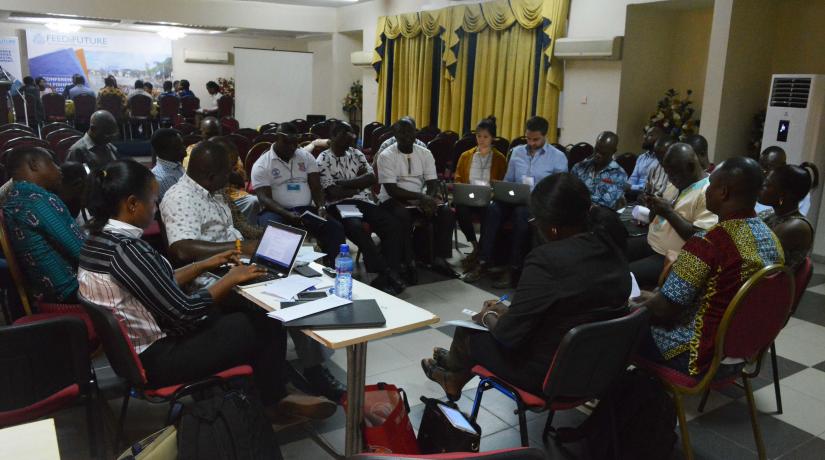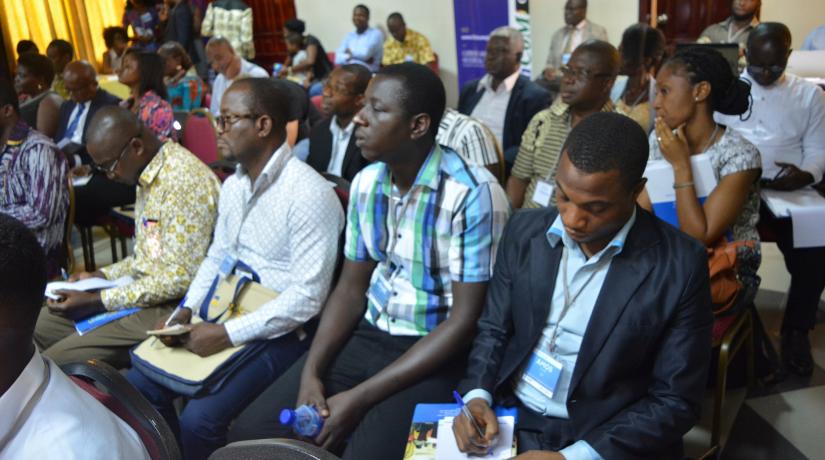Scientists from Ghana’s universities and research institutions, civil society, private sector, fishermen and fishmongers, government ministries and agencies, representatives from the USAID Sustainable Fisheries Management Project (SFMP) of the University of Rhode Island, USA in all numbering 240, convened in Accra for the first Conference on Fisheries and Coastal Environment (CFCE), referred to as the Accra Conference 2017.
The scientists were from the University of Cape Coast, University of Ghana, Kwame Nkrumah University of Science and Technology, University of Education, Winneba; University for Development Studies, University of Energy and Natural Resources, and Council for Scientific and Industrial Research. Civil society represented at the Conference included Imani Ghana, Hen Mpoano, Friends of the Nation, Free the Slaves and the Concerned Ghanaian Citizens in Fisheries.
The Conference provided a platform for researchers, journalists, political representatives and representatives from think-tanks to connect around issues of vital national interest concerning sustainable fisheries and coastal management in Ghana.
Participants worked in interactive and dynamic sessions to consider issues in six main areas:
Fisheries and coastal governance and policy
Fisheries economics and value chains
Ocean and coastal environments
Mariculture and green businesses for the coastal environment
Illegal, unreported and unregulated fishing practices
Livelihoods and poverty reduction in coastal areas
